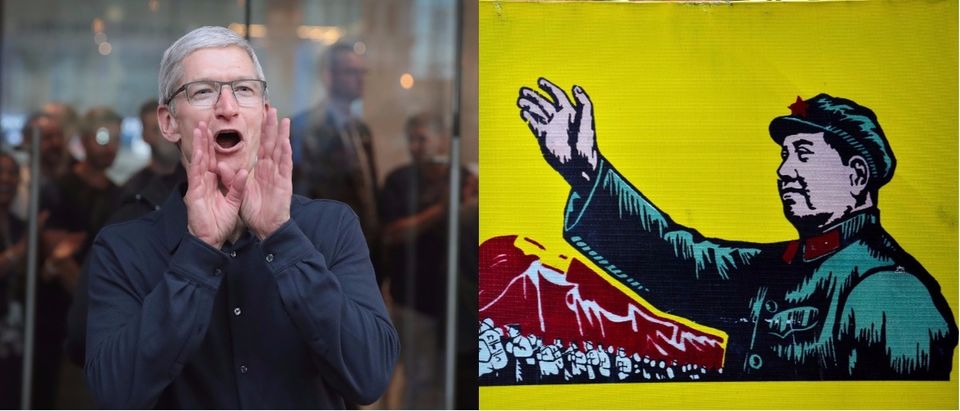If you are a corporate CEO and you receive a pointed letter about your business practices from two U.S. senators, it will command your attention, right? And if one is a liberal Democrat and the other a conservative Republican, evidencing broad concern about whatever they are complaining about, don’t you just rivet straight up?
Apparently not if you are Tim Cook and your company is Apple. After all, Apple has a market capitalization approaching $900 billion and is the most admired brand in the world. Maybe you don’t have to pay much attention at all, even if the Senators are raising serious — and potentially explosive — questions about your relationship with the Communist government of China.
On October 17, Senators Patrick Leahy (D-VT) and Ted Cruz (R-TX) wrote Cook about the removal in July of Virtual Private Network (VPN) apps from the Apple store. VPNs allow users in China to circumvent censorship. The Senators pointed out that China has “an abysmal human rights record, including with respect to rights to free expression.”
The senators then posed ten very specific questions, such as the exact number of VPN apps removed with or without a government request, and whether Apple has “made any formal requests with the Chinese government” to reintroduce the apps. They also requested “copies of any statements that Apple has issued either promoting freedom of speech in China or condemning the Chinese government’s censorship and surveillance mechanisms…”
As far as congressional letters go, this one was pretty trenchant. It noted that Cook had accepted the 2017 “Free Expression Award” from the Newseum in April when he claimed, “At Apple we are not just enabling others to speak up, we are doing so ourselves.” This issue was raised by the National Legal and Policy Center in September when we asked the Newseum to rescind the award.
One might imagine that Cook would respond by acknowledging the legitimate concerns raised by the letter, perhaps alluding to Apple’s dilemma of having substantial business in China while having no control over what turns Communist Party rule might take.
In fact, Cook did not respond at all, handing off the task to an underling, someone named Cynthia C. Hogan, whose title is “Vice President for Public Policy, Americas.” When you are a Master of the Universe you can have your own foreign policy, complete with regional emissaries.
Hogan’s November 21 response never addresses the obvious issue raised by the Senators, namely the morality of Apple caving in to Chinese authorities by removing the apps. Instead, she quoted Cook’s previous statement from August that the company was “required” to remove the apps, and that “we follow the law wherever we do business.”
Of course, Apple had to comply only if it is worried about its future in China, including the fate of the giant data center it is building in the southern province of Guizhou, part of a $1 billion investment.
Apple could have instead done the right thing and refused to remove the apps. After all, Cook has experience saying “no” to a government. Last year, Cook resisted a federal court order to unlock for the FBI the iPhone of Rizwan Farook, the San Bernardino shooter, calling it an “overreach by the U.S. government.” Farook and an accomplice had opened fire on a Christmas party killing 14 people and wounding 22.
This weekend, Cook gave a keynote speech at the so-called World Internet Conference, an annual event staged by the Chinese government. Described by Bloomberg as “designed to globally promote the country’s vision of a more censored and controlled internet,” this gathering has been the target of protest and derision by internet freedom advocates worldwide since it was first held in 2014.
Brushing off two U.S. Senators takes arrogance. Taunting a world full of human rights activists takes bad judgment. Cook invites the kind of reaction that prompts legislators to action.
Peter Flaherty is president of the National Legal and Policy Center.
The views and opinions expressed in this commentary are those of the author and do not reflect the official position of The Daily Caller.


